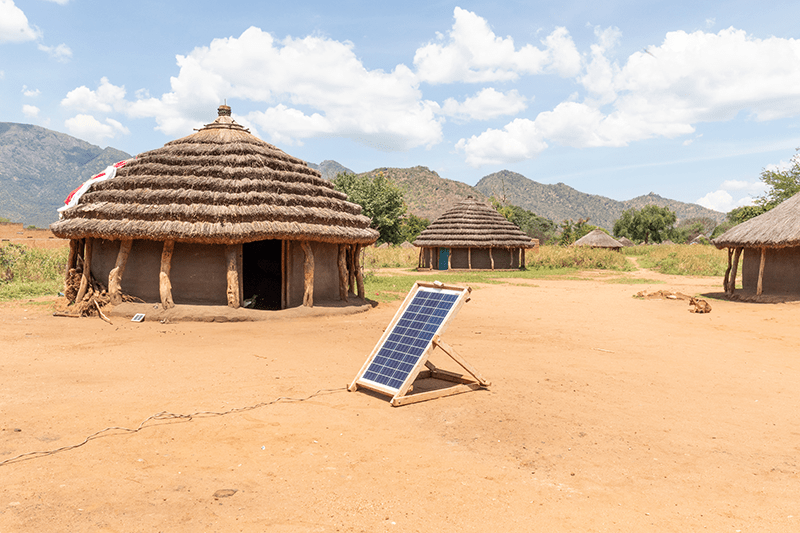Opening Ceremony lays the foundation for cross-sector collaboration and breakthrough solutions.
How innovation in the global south is powering climate action
The narrative surrounding climate change in the Global South has long centered on its challenges – what would happen if we focused on its potential?
Countries in the Global South are taking charge of their own future.
Experts have long recognized the bitter irony that though countries in the Global South contribute the least to emissions, they bear the brunt of climate change’s effects. From smallholders who are more vulnerable to extreme climate events like floods, droughts and hurricanes, to women experiencing increased rates of domestic violence in the face of economic and climate disasters, to island nations that anxiously watch as rising sea levels threaten their existence.
Against a backdrop of long negotiations and sluggish responses from the Global North in addressing inequalities in climate change, countries across the Global South have launched their own initiatives and begun powerful collaboration to adapt to a warming world and mitigate the effects of climate change.
For example, countries across Latin America and the Caribbean like Ecuador, Peru, and Trinidad and Tobago have invested in bolstering and expanding early warning systems to help residents prepare and respond to natural disasters. Small island developing states like Fiji, Dominica and the Maldives have responded to climate disasters by launching long-term plans to build back stronger, including renewable power sources, adaptive infrastructure and better sea defenses. The small Himalayan nation of Bhutan has taken the global lead in becoming the world’s first carbon negative country.
What’s powered these successes in the Global South, despite the challenges? And what are the most pressing obstacles to scaling their impact before 2030, the global deadline to limit global warming to 1.5°C?
The answer to both questions may be the same: innovation, collaboration and finance.
Climate tech startups in the Global South
Beyond national frameworks and public projects, innovators in the Global South have pioneered their own solutions across agriculture, water and renewable energy.
Some startups have attracted international attention, winning awards for their solutions’ innovation, impact potential and scalability.
Ghana’s Sabon Sake works to regenerate degraded farmland with the latest science, to help address risks to the nation’s food supply. Across the continent, Kenya’s Drop Access supplies rural communities and critical industries with solar-powered refrigerators and clean cookstoves, helping over 1,000 households to date.

Aabshar in Pakistan produces water tap nozzles that dramatically decrease water wastage, and is launching a smart water meter to address the country’s water shortages. To date, this one company estimates it has saved over 4.3 billion liters of water.
In Colombia, startup E-Dina designed the Waterlight, which was listed as one of the best inventions of 2022. Using chemical reactions, they’ve created an innovative device that can generate light with just saltwater – immensely promising for millions of people who live far away from electricity sources but live near oceans.
Financing the green transition
The ingenuity of scientists, entrepreneurs, activists and designers in the Global South is clear, but they need backing from funders to make their solutions a reality.

Venture capitalists have started to recognize the potential – and importance – of supporting these world-leading startups. Within the Global South, dedicated groups like Kigali’s Africa Climate Ventures, Mumbai’s Avaana Capital, Buenos Aires’ Grid Exponential, and Kingston’s Caribbean Climate Innovation Centre have dedicated themselves to supporting emerging climate technologies in their regions. Their knowledge of their specific challenges and contexts can help tailored solutions be recognized and scaled.
But the Global South shouldn’t be left to invent, bootstrap, finance and scale solutions themselves. And government investment from high-income countries isn’t the only other option.
Wider solutions like funding from the private sector can help accelerate and expand climate technologies across developing countries, and the opportunity is immense. More than 80% of green investment is funded by the private sector in high-income countries, but in emerging economies it’s only 14%.
Discussing this issue in the realm of farmer-focused financing at COP28, global experts explored a range of financing models that could help de-risk projects and attract funding, including blended finance (combining philanthropy and concessional finance), financial aggregation and restructuring debt.
When investment is available, partnerships can increase efficiency, magnify impact and help the Global South make the most of every dollar invested into a green future.
Supporting partnerships and cooperation
Countries across the global south have recognized the power of working together to achieve climate goals. Through sharing knowledge, resources and experiences, leaders can identify and implement cost-effective and tailored solutions.
Creating and supporting these ecosystems will be vital for developing countries facing climate challenges. Coalitions like Innovate for Climate Tech, platforms like the UNOSSC’s South South Galaxy, and initiatives like the UN’s Southern Climate Partnerships Incubator help formalize and accelerate efforts.
Effective collaboration is not limited to agreements across borders, but across sectors and industries. For example, public officials in Kigali built and maintained a large car-free zone in partnership with an events company, whose profits from using the space help maintain the zone. No partnership is too small to make a difference.
Shifting mindsets for a greener planet, north and south
For years, discussions about the Global South have centered on highlighting the challenges and difficulties faced by each nation, accompanied by unresolved debates on the obligations and support from wealthier countries to address them. As we approach the deadline for the Paris Goals, there's a pressing need for a paradigm shift in global perception.
It's essential for leaders, countries and funders to acknowledge that emerging economies have been industriously building and deploying their own strategies to navigate the impacts of climate change. Instead of seeing the Global South as merely victims, it's time to recognize their resilience and proactive efforts, and add strength to their existing solutions and immense potential.
As we hurtle toward 2030, it's imperative for all nations – north, south, east and west – to fully commit to collaborative action.


